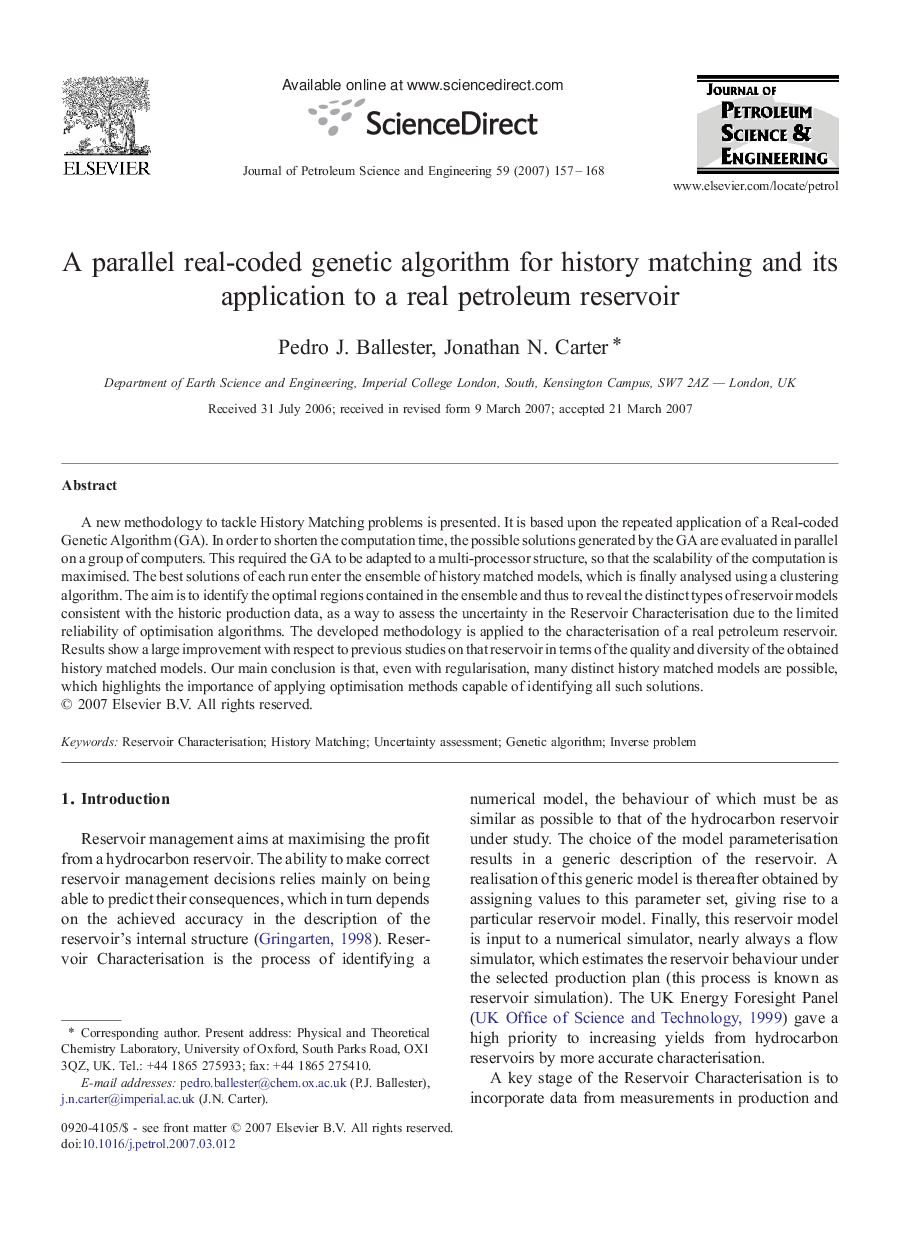| Article ID | Journal | Published Year | Pages | File Type |
|---|---|---|---|---|
| 1756247 | Journal of Petroleum Science and Engineering | 2007 | 12 Pages |
A new methodology to tackle History Matching problems is presented. It is based upon the repeated application of a Real-coded Genetic Algorithm (GA). In order to shorten the computation time, the possible solutions generated by the GA are evaluated in parallel on a group of computers. This required the GA to be adapted to a multi-processor structure, so that the scalability of the computation is maximised. The best solutions of each run enter the ensemble of history matched models, which is finally analysed using a clustering algorithm. The aim is to identify the optimal regions contained in the ensemble and thus to reveal the distinct types of reservoir models consistent with the historic production data, as a way to assess the uncertainty in the Reservoir Characterisation due to the limited reliability of optimisation algorithms. The developed methodology is applied to the characterisation of a real petroleum reservoir. Results show a large improvement with respect to previous studies on that reservoir in terms of the quality and diversity of the obtained history matched models. Our main conclusion is that, even with regularisation, many distinct history matched models are possible, which highlights the importance of applying optimisation methods capable of identifying all such solutions.
